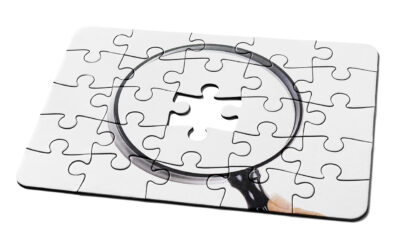This can happen when businesses build their own websites, or upload blog posts on their website or marketing or promotional items online. Typically, it’s the result of one of their staff using a photo they downloaded from Google instead of purchasing the image from an online store like istockphoto, Shutterstock orGetty Images.
These letters will often come from law firms or companies like picrights.com, which demand payment for them to drop the case.
These firms represent the copyright holders and depending on how a company has used an image, the fines can range from a few hundred to thousands of dollars.
As the internet evolves and images are shared and reshared online, copyright owners have hired law firms to go after companies using their images without permission. And the fact is that most images found online are copyrighted.
The owners use Google’s Reverse Image Search or similar apps to find every instance of their photo online, from blogs and company websites to business LinkedIn posts.
Once they find who owns the website or account where the picture is posted, the law firm will send a strongly worded letter demanding payment for improper use. These letters will typically include the link to the page where the photo is displayed and why they are demanding payment.
Copyright is the legal protection afforded owners of or authors of original artistic and intellectual works. Companies that use photos without permission are at the least infringing on someone’s copyright, and at the worst are violating the Digital Millennium Copyright Act.
How to avoid copyright infringement
If you use an agency to produce your materials, you should insist on them showing “proof of purchase” of the images.
If you have staff managing your social media or changing photos on your website, you should have a policy in place that bars them from downloading images from other websites or Google Images. Instead, open an account with any number of online photo procurement websites, like Gettyimages.com, istockphoto.com, shutterstock.com.
But you should read the fine print on those websites as well. While they often use the words “royalty free,” that does not mean they are free to use. Instead, it refers to the right a copyrighted image without certain restrictions as long as the owner is compensated for it.
Finally, you should implement a comprehensive intellectual property plan for vendors like graphic design houses, marketing firms and even employees who are managing or posting on your social media accounts, design webpages, create graphics, and even edit and create video.
If you get a letter
The first step should be to immediately remove the image from your website, but that won’t absolve you of any responsibility. If one of your staff or an outside vendor was responsible for choosing the picture, it is ultimately your organization that is responsible since it’s on your website.
Negotiation won’t usually work but if you take the image down, you may be able to come to an agreement on the amount. You should do this to avoid being sued and having the case go to court.
You may also want to call your attorney to discuss your options.
They can review the case and advise you. Your lawyer can also check to see if the image is actually copyrighted.
Often your lawyer can negotiate on your behalf, particularly if the infringement was a one-time mistake and the image wasn’t used as part of your website landing page or on promotional materials.
If you do use images you purchase from an online photo site, you should also go back into your history to see if you paid for the image in question. These sites can often help with the search if you provide them with the demand letter.
The worst thing you can do is to ignore the letter. That can result in your company being sued and the plaintiffs demanding even more money than before they gave you a chance to settle the issue.








